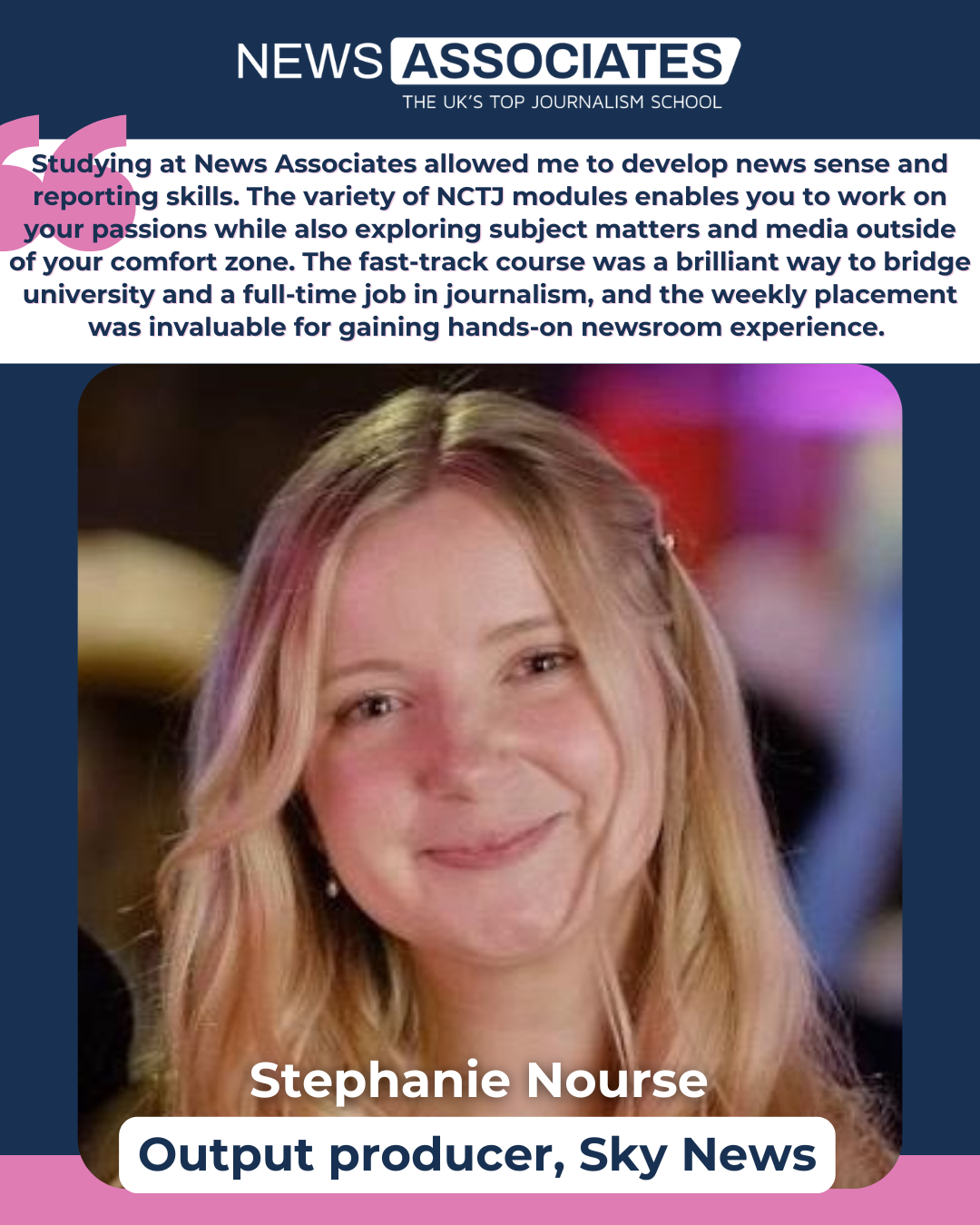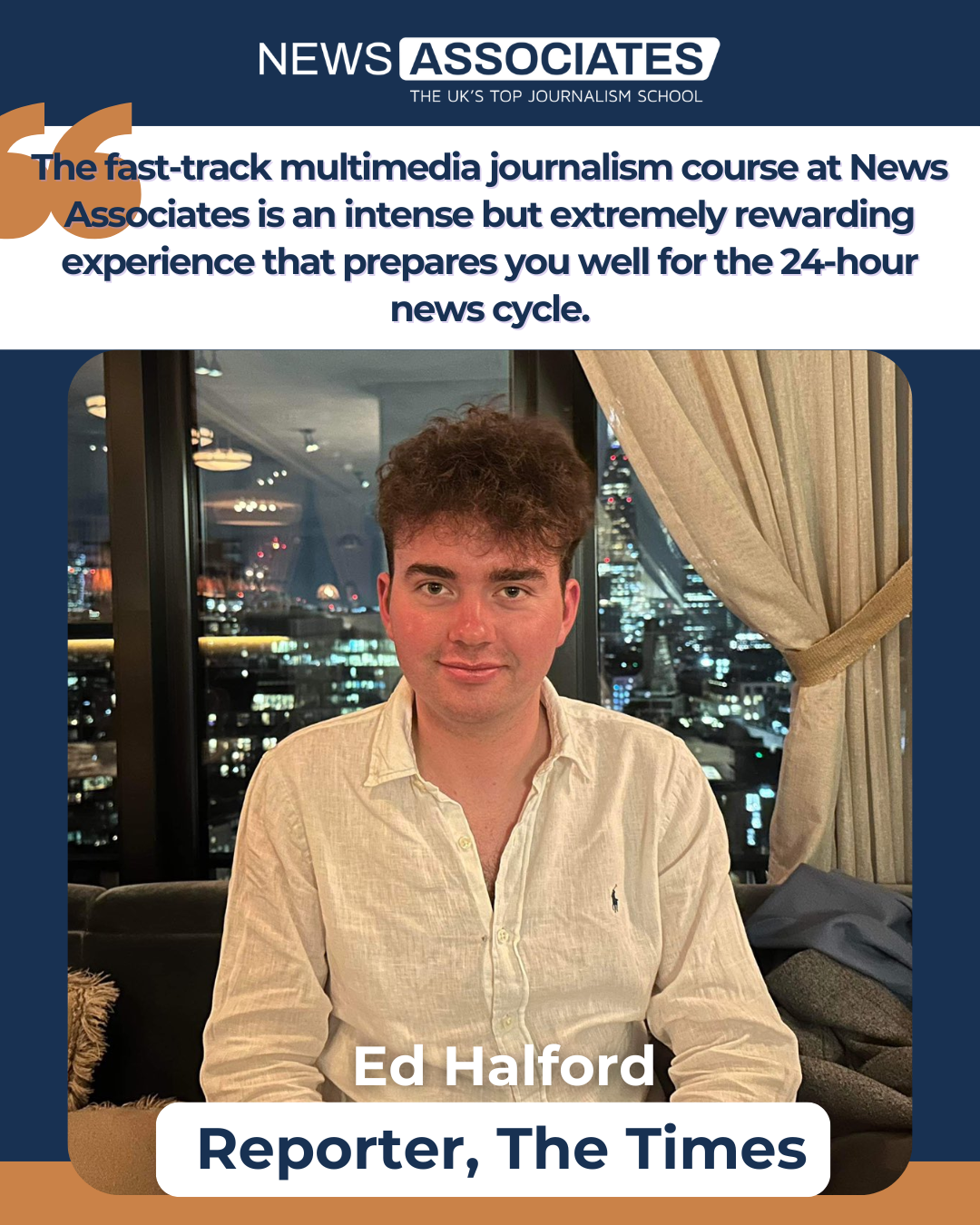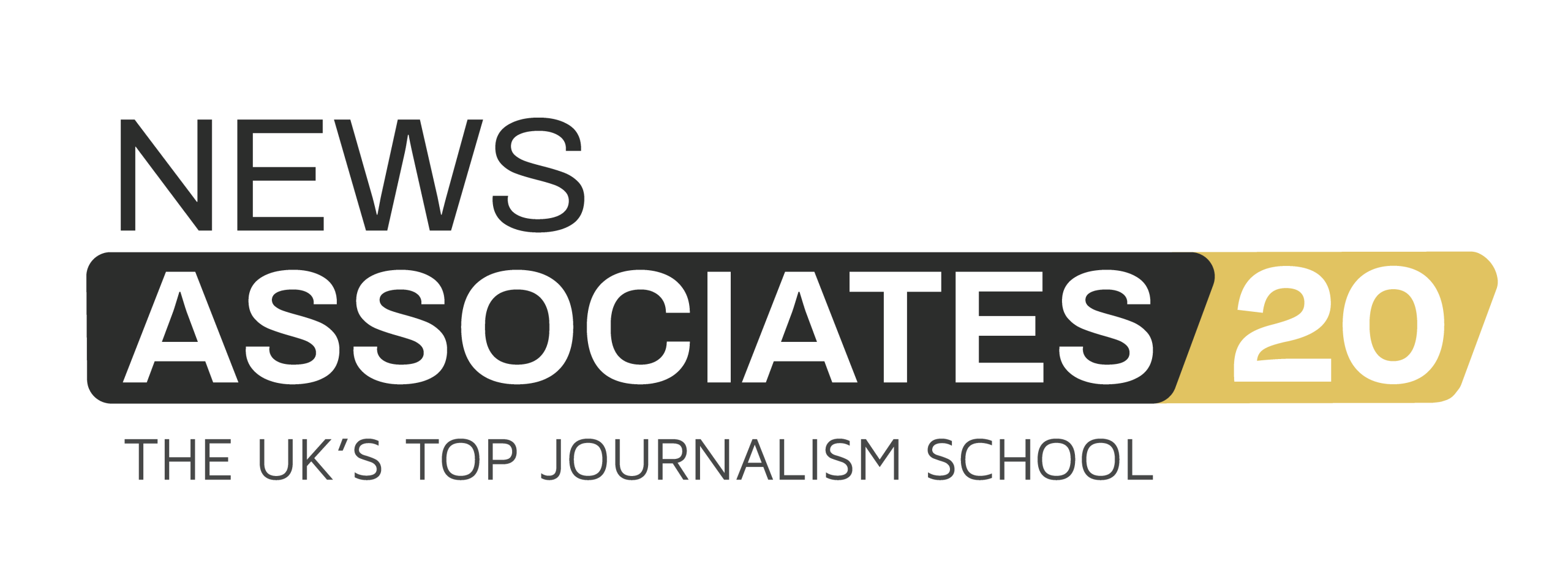Studying for your NCTJ qualification on a full-time fast-track course is intense, but your tutors are there to guide you.
But don’t just take our word for it, here’s some advice from those who have been there and done it.
Rebecca Whalley, Global Competition Review news reporter
“The fast-track course is unsurprisingly very intense, but the most important thing is to manage your time and get things done as early as possible. Come up with ideas for projects early on, ask questions, do the research. A time comes in the course when you’re juggling multiple deadlines, revision and work experience, but if you’ve done the legwork, you can avoid most of the stress. The tutors have a wealth of industry knowledge and they’re always there to answer any questions – don’t be afraid to ask. Don’t shy away from taking every opportunity, and don’t lose motivation when you start applying for jobs – it’s tough out there, but it’s worth the hard graft!”

Gracie Daw, The Guardian production assistant
“My advice to a fast-track trainee would be to read or consume a large amount of journalism from as many sources as possible. Understanding the news landscape is a skill that will help you learn what you’re interested in and develop your own skills as you will start to discover who’s writing style you enjoy, what keeps you engaged in a podcast, or how a radio presenter changes their tone depending on the story. Alongside reading news, make sure you also go for opinion, features, sport, lifestyle and much more even if it is not where your interests lie. This will help you with your own journalism and also going forward as you apply for jobs in the industry.”
View this post on Instagram
Daisy Clague, Islington Tribune reporter
“I decided to do the NCTJ after speaking to people in the industry, many who said they didn’t know any journalists (in our generation!) without some kind of journalism qualification, be that a Masters or NCTJ. I learned so much at News Associates about the basics of writing clear, clean news copy and finding stories for any beat. My advice is to do as much work experience as you possibly can and build a strong portfolio. Be flexible about what you do when the course ends, too — I didn’t expect to work in local journalism but it’s the best job ever! Meet and talk to whoever you can because you never know what it could lead to.”
Kieran Smith, Financial Times telecoms and tech correspondent
“My greatest advice to any trainee is to pitch articles at any given opportunity. No article was ever written that wasn’t commissioned, whether it be at a local publication or an national outlet. Therefore, trainees should go above and beyond to show they have the nose for a story and are happy to put their hand up to write it. News Associates gives you the skills and the support needed to progress in your journalism career, and South West Londoner offers you the chance to write articles and get bylines — so make the most of it.”

Blaise Cloran, The Telegraph editorial graduate
“Studying with News Associates taught me invaluable skills for my career in journalism. From navigating the world of freelancing to supporting me with my exams, News Associates helped every step of the way. Looking back, my best advice would be to network with everyone in the industry and always stay organised, that way you can enjoy every moment while still being on top of revision.”
Arthur Ferridge, London Standard digital sports content editor
“Getting started in sports journalism, you have to be ready to jump on any opportunity presented to you, but you also have to make your own luck, whether that means going above and beyond at your placement, picking up shift work on weekends, or writing for independent news sites in your spare time. Every journalist will tell you to say yes to everything – that mantra landed me a trip to Kazakhstan during my course. It is key to have a really strong knowledge base across various sports on top of the teams, players, or disciplines you’re most passionate about covering. To be able to show an editor that you have a broad portfolio covering a variety of sports for a range of outlets will be a huge boost to your job prospects once you’ve completed your NCTJ. There is no better place to do that than at News Associates, where both your tutors and course mates will push you to hone your skills and grow as a journalist.”
Got a question about our part-time journalism courses? Contact us on training@newsassociates.co.uk or 0203 026 3781.
Sign up for a free journalism workshop here.
Apply for our full-time fast-track journalism course here.


